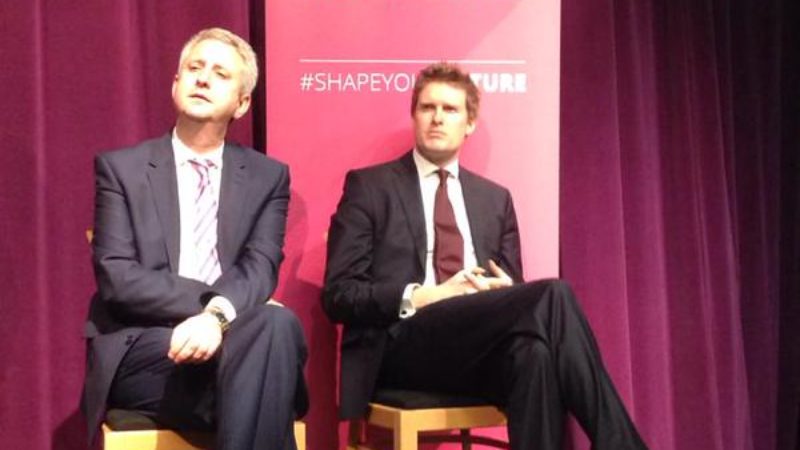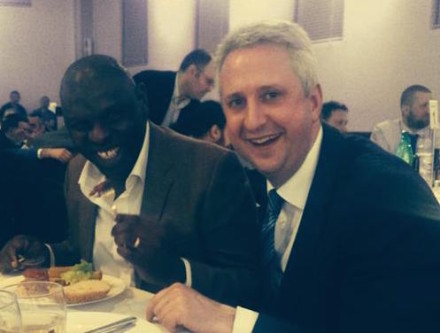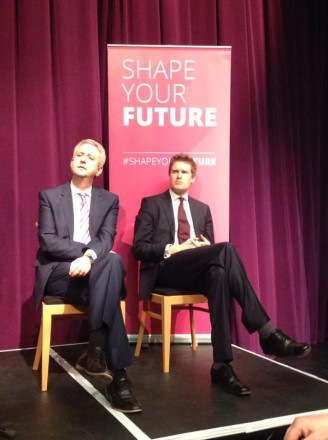
There is a picture that hangs on the wall of Ivan Lewis’ office. It captures the moment Shaun Goater, a footballer whose nickname was “The Goat”, slipped the ball under World Cup winner Fabian Barthez to give City the lead against United in the last ever Manchester derby played at Maine Road.
The photograph is signed by The Goat himself, and as my conversation with City fan Lewis progresses, it seems to make more sense that it is this moment he chooses to cherish rather than, say, the Sergio Aguero goal in the last minute of the 2012 season that clinched City their first league title in 44 years. It is not, I concluded, simply because signed photos of Goater are easier to come by than ones of Aguero.

The last Maine Road victory in some ways marked the end of the old Manchester City: before the swanky new stadium, before the billionaire owners and before all the titles, they were the epitome of a luckless, unpredictable football team. Yet even with their record of snatching defeat from the jaws of victory, and falling to the big occasions, there was still hope that they could do things like beat their local rivals – who just happened to be one of the biggest teams in the world.
It is this ideal, the unlikely triumph of the down-and-outers, that I think appeals to Ivan Lewis. That actually, great achievements can be recorded by the people everyone has written off. And if you’ve ever wondered why young people don’t engage in politics, it’s because they are the ones most likely to be written off.
Lewis has been given the job of spearheading the Shape Your Future initiative – the process that has been feeding ideas into what will become Labour’s Young Britain Manifesto. It won’t simply stop there, though. “This is the beginning of a process of engaging with young people differently on a long term basis,” he tells me. And he’s not under the illusion that simply talking to young people would be breaking new ground:
“People talk all the time about restoring faith in politics, engaging with young people, well to be honest with you we’re not the first group of politicians to sit round rooms using that kind of language – so we have to actually look at how can we do things differently in the future, and I think part of that is about engagement, part of it is the means by which you communicate not just an opposition but as a government.”
Young people, Lewis says, did not want politicians to turn up with no ideas, and so the Young Britain Manifesto engagement has not begun with a ‘blank page’. The message instead is that Labour already have a significant number of policies, and “you may want to add to them, you may want to interrogate them, you may want to make them better”. He even politely promises to take my own complaint into account: that policies such as banning junk food adverts aimed at under-18s seem out of step with ones such as votes at 16.

While Shape Your Future may be a long-term process which aims to change the way young people engage with politics, how will this be shown in the manifesto?
“If we produce a 100 page document, a traditional conventional manifesto, and think that young people are going to be turned on by or engaging with it, I think we’d be wrong. So I think we’ve also got a lot to do with how that manifesto feels, how it looks and how we communicate it to people.”
Understandably, he keeps schtum on what the specifics of that mean, but perhaps we are not to expect a credit card-size physical pledge cards for the youth of Britain. While the “social media election” is an unhelpful, untrue cliche, those under 35 in this country are far more likely to find out information about politics via their phones rather than a leaflet scrunched through the letterbox. In Lewis, Labour have someone who is unwilling to downplay the difficulties of reaching out to the younger generation.
On the face of it, the Shadow Northern Ireland Secretary is not the most obvious choice to lead the line on the Young Britain Manifesto: on May 7th, there will be some people going to the polls won’t have been born until a week after Lewis became an MP.
But he has a more interesting story than I realised. He speaks candidly about how his parents’ divorce affected him at the age of 11, and found life “really tough” until he discovered voluntary charity work at 14, helping children with learning difficulties. Having been sent to a fee paying school by his “socialist dad” (“this is a man who gets the Morning Star or the Daily Mail every, so maybe that’s a good explanation”, he laughs), he upset his parents by leaving education at 17 to pursue charity work further.
At 19 he set up his own charity. At 23 was a local councillor in Bury. At 24 he was chairing the Social Services Committee. At 25 he was Chief Executive of 125 year old charity. At 29 he was a PPC, at 30 an MP and at 34 was the first ever Minister for Young People.
It’s an unusual rise, and he credits “adults at different stages giving me chances and showing confidence and faith in me to give me jobs and roles that were normally reserved for much older people.”
It is that same faith that Lewis now wants to put in the next generation. We talk about the Promise of Britain, the line that occasionally appears in Miliband speeches, which the leader describes as ‘the next generation doing better than the last’. “I’ve been one of the big advocates for the Promise of Britain,” says Lewis.
“We want our society to be progressively moving forward in terms of opportunity, social mobility, all of those things. That’s what both is at the core of of the basic instincts of most adults and also it’s at the heart of what the Labour movement has always been there for.”
And what, finally, will actually be in the Young Britain Manifesto? What are young people actually saying?
“Young people are passionate about an NHS which is not fragmented,” he claims. I find that suspiciously on message, but there is polling to back it up. A greater focus on mental health in the NHS is something he raises several times, as is the idea that “the cost of living’s not just for older people”. Pay for young people is especially a problem, and “the pay that young apprentices get comes up on a regular basis.”
While Labour have committed to raising the minimum wage and increasing apprenticeships, nothing has yet been said about the fact apprentices can be paid as little as £2.73 an hour. Will they do something about it? Lewis leans back.
“I don’t think Ed Balls would be very happy if I told you that.”




More from LabourList
‘Labour won’t stop the far right by changing leaders — only by proving what the left can deliver’
‘Cutting Welsh university funding would be economic vandalism, not reform’
Sadiq Khan signals he will stand for a fourth term as London Mayor